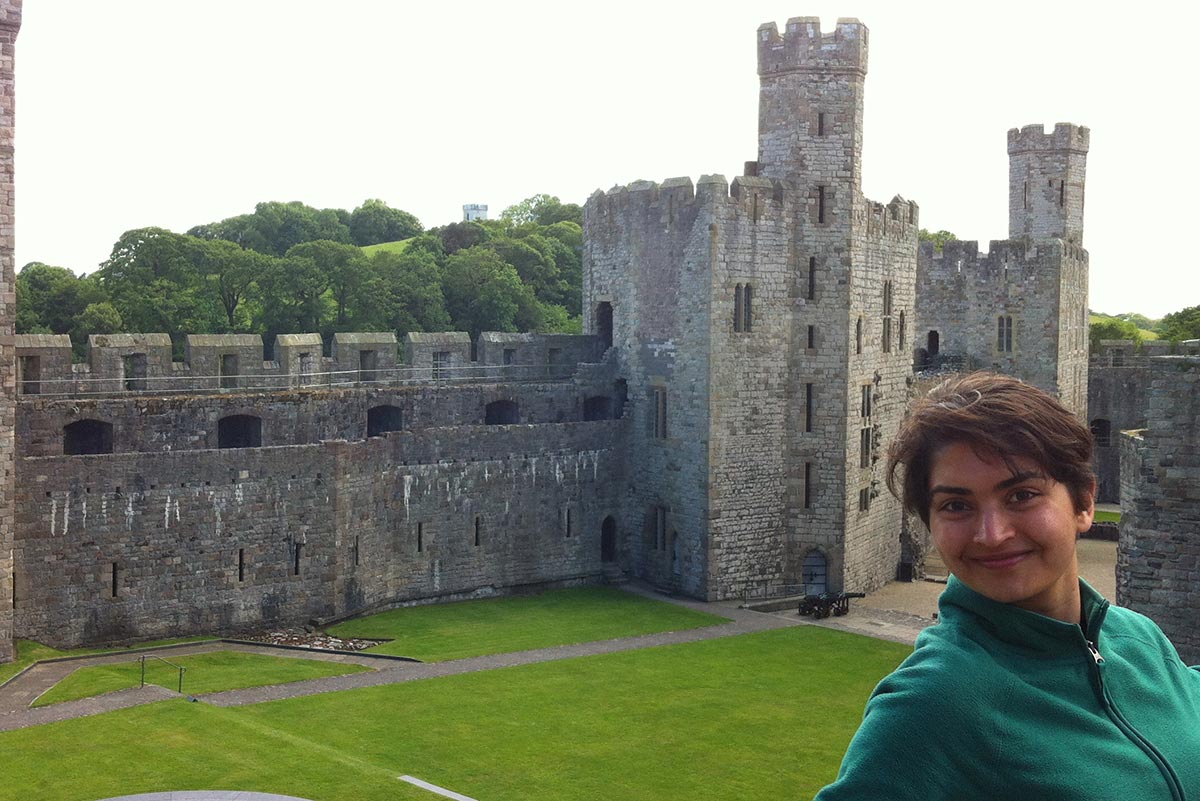Undergrad researches the desecration of cultures
By Kathy Hovis

Anjum Malik ’16, who hails from Pakistan, was concerned by people’s reactions to the destruction of museums and heritage sites by Islamic militants in Iraq and Syria.
“Western colonial empires committed these same acts less than a century ago,” to destroy the cultures of those they were trying to overpower, Malik said, citing as examples the destruction and conversion of heritage sites in India by the British Empire into offices and residences and the ransacking of the National Museum of Baghdad during the Iraq war.“It’s quite unfair and prejudiced to say that Islamic militant groups such as ISIS and al-Qaida are doing something new and unheard of.”
A double major in anthropology and archaeology in the College of Arts and Sciences, Malik was awarded a Freedman Award for Undergraduate Research this summer, as well as a Hirsch undergraduate scholarship, to explore the reasons for museum and heritage site destruction and the role museums play in educating the public about iconoclasm throughout history.
“People’s general understanding of archaeology is that it’s not relevant to present-day matters,” Malik said. “In the West, archaeology is generally thought about along the lines of an Indiana Jones movie or a middle-age pastime … But in a place like India, where one’s past is a huge part of one’s present identity, current clashes between different factions can have life-threatening consequences – the Babri Mosque conflict in Ayodhya, India, being a case in point.”
Malik is studying how people’s perceptions of heritage destruction tend to be historically out of context. She’s already conducted research at heritage sites in England, Wales and Scotland during her spring semester abroad at University College London and this summer, she’s visited other sites in New York City and Washington, D.C., to interview museum staff.
She’s researched incidents of museum vandalism in the West, as well, such as the attack on an exhibit by Ai Weiwei at the Pérez Art Museum Miami and the defacement of a Rothko painting at the Tate Modern, London. Malik said these acts of vandalism were not as widely publicized as the heritage destruction in Iraq, Syria or Afghanistan.
“Whether or not we think these small incidents are comparable to what’s happening in the East, the perpetrators are not impulsively committing vandalism on the spur of the moment but provide justifications for their actions with the same strong convictions as al-Qaida and ISIS,” Malik said.
In some cases, people destroy their own heritage sites, Malik has found. A lecturer of Malik’s told her about a rock painting located in a cave that was sacred to an indigenous tribe. When museum officials fenced off the cave in an attempt to preserve it, the tribe painted over the rock painting to protest the museum’s actions.
Malik said the strong reaction in the West to the recent Mosul Museum destruction in Iraq by ISIS indicates misunderstanding between cultures.
“We may have accomplished incredible technological advancements, but we haven’t achieved the ability to understand and appreciate the beliefs of people who are different than us,” she said.
Malik hopes her project might shed some light on these issues and open conversations among different cultural and ethnic groups on campus.
“I’ve found Cornell to be a place where people are eager and excited to learn about others’ experiences,” she said, citing the efforts of Renee Alexander, associate dean and director of intercultural programs in the division of Student and Campus Life and her team at the Cornell Center for Intercultural Dialogue.
Malik’s long-term goal is to earn a doctorate and return to Pakistan to conduct large-scale archaeological field excavations there.
“I’d like to do justice to my own country’s heritage,” she said.
Kathy Hovis is a writer for the College of Arts and Sciences.
Media Contact
Get Cornell news delivered right to your inbox.
Subscribe